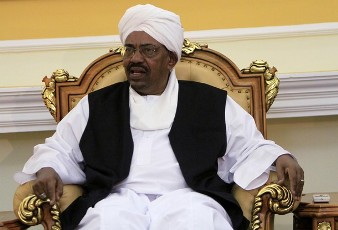Sudan’s Bashir politely brushed aside reform demands: source
January 16, 2012 (KHARTOUM) – The Sudanese president Omer Hassan al-Bashir is resisting calls for major reforms demanded by his own National Congress Party (NCP) and the Islamist base, Sudan Tribune is told.

The details of the memo remain unclear, the source said, but added that the Sudanese president responded vaguely to some of the demands while saying that it is “premature” to address the others.
Another “mysterious” memo has emerged this month that was circulated among a number of key Islamists calling for an overhaul of state policies including fighting corruption, establishment of a citizenship-based state, and banning the combination of party positions with constitutional positions.
NCP officials gave conflicting accounts on the memo but eventually acknowledged its existence and downplayed any speculations that it is a sign of split within the NCP and its Islamist base.
The existence of the memo seems reminiscent of the famous ‘memo of the ten’, which led to the ousting of Islamist leader Hassan Al-Turabi, who moved on to form the Popular Congress Party and joined the ranks of the opposition over a decade ago.
The most prominent signers of the ‘memo of the ten’, which was championed by now First Vice President Ali Osman Taha, included Ghazi Salah al-Deen, Amin Hassan Omar, Ali Karti, Osama Abdulla and the late presidential adviser Majzoub Al-Khalifa.
The source expressed concern that given the unwillingness of NCP leadership to embrace reform could lead to a potentially “bloody” clash between the military and Islamists.
“Bashir believes that he can buy time and eventually get away with this as he did with other major challenges in the past. This time it is different. He [Bashir] is a burden and on top of that the country is facing an unprecedented economic crisis” the source said.
“When the country’s finances dried up it made differences come to the surface more strongly than ever. There is growing frustration across the board. This was evident in Ghazi and other NCP MP’s rejecting the government’s budget plan containing subsidy cuts. They are fearing a revolution that could sweep them away and ruin all their accomplishments since the [1989] coup ” the source added.
The source went on to say that the Islamists in the NCP feel left behind at a time when Islamist movements in the region are becoming the “pioneers of democracy” in reference to Egypt and Tunisia.
A year ago Bashir announced that he will not stand for reelection in 2015 but some officials have seemed to downplay this statement saying that it is up to the NCP to name its nominee.
The Sudanese leader also proposed a retirement age for government and party officials to allow for new blood.
However, the recent formation of the new cabinet that kept most of the old faces in their posts have angered and disappointed NCP supporters and was seen a sign that reform promises made previously were not serious.
The NCP had pledged to create a leaner and more efficient government to cut expenses after oil-rich South Sudan became an independent state in 2011, taking with it 75% of Sudan’s oil.
(ST)
